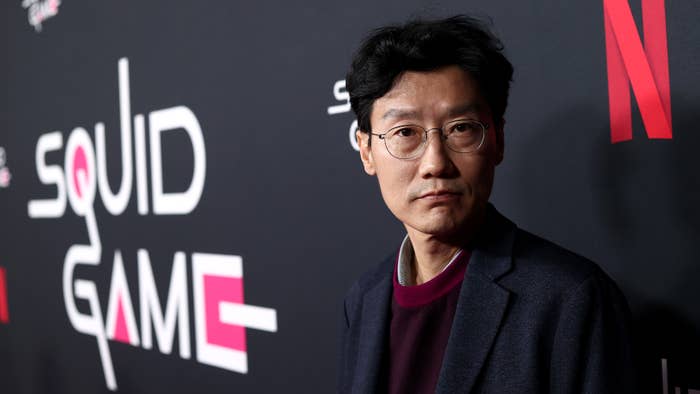
Squid Game creator Hwang Dong-hyuk reportedly "forfeited all intellectual property rights and received no residuals" as Netflix raked in nearly $1 billion from the groundbreaking series, the Los Angeles Times writes in an article exploring the broader exploitation of South Korean creators in the streaming age. Reporter Max Kim said he penned the piece to explore "why and how [Netflix have] been able to buy so much high-performing content for so cheap."
When Hwang was asked in October 2021 if he had become as rich as the $38 million winner of the series' fictional, brutal competition, he told the Guardian, “I’m not that rich. But I do have enough. I have enough to put food on the table. And it’s not like Netflix is paying me a bonus. Netflix paid me according to the original contract.”
Netflix turned a huge profit from the debut season, which cost about $2.4 million per episode to produce and increased the streamer's value by an estimated $900 million, per company documents.
The L.A. Times report surfaces at a time when film and TV productions have been stalled due to the absolutely necessary Writers Guild of America (WGA) strike. One of the issues being discussed is residuals in the era of streaming.
"In streaming, the companies have not agreed to pay residuals at the same level as broadcast, or the same reward-for-success as they have traditionally paid in broadcast," WGA West assistant executive director Charles Slocum told Deadline in April. "If you write for a streamer, you get two residuals payments—one for domestic streaming and one for foreign streaming. It’s a set amount of money. If it’s a big hit, you do not get paid more residuals in streaming, whereas in the broadcast model, you do because of its success."
Slocum explained the WGA is looking for "premium" residuals which would not only increase the pay of writers and showrunners based on experience, but also reflect the broadcast model where they can earn more money for a successful show.
On Twitter, both the WGA West and WGA East responded to the Los Angeles Times article highlighting Hwang Dong-hyuk's lack of residuals and intellectual property rights. The latter alluded to the unfortunate parallels between Squid Game's in-universe reality and the one its creators live in, writing, "The irony is not lost on us. Pay your writers."
Netflix revealed earlier this month that Lee-Jung jae and Wi Ha-joon are among the actors who will be returning for Season 2 of Squid Game. Four new additions were also announced. Dong-hyuk confirmed the second season will include the introduction of Cheol-su, the boyfriend of the giant animatronic doll Young-hee.
Season 2 is expected to premiere next year.
Read the full Los Angeles Times piece on South Korea's place in the Netflix ecosystem here.


